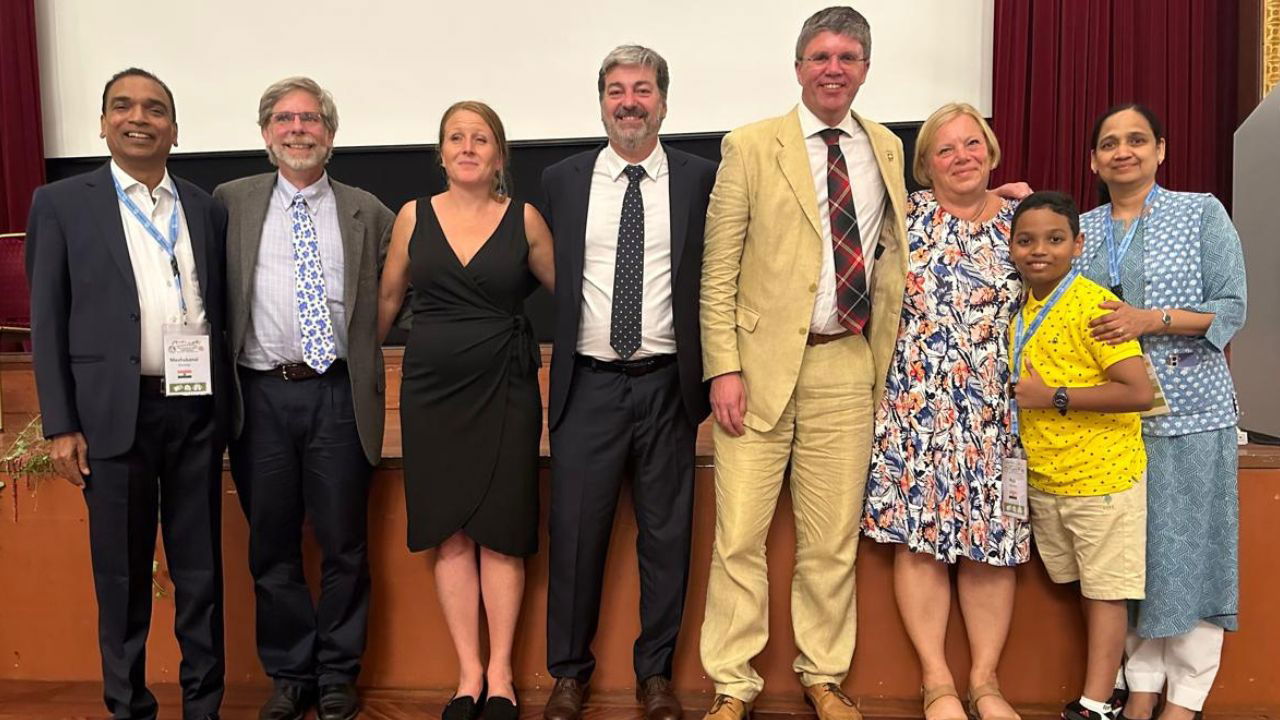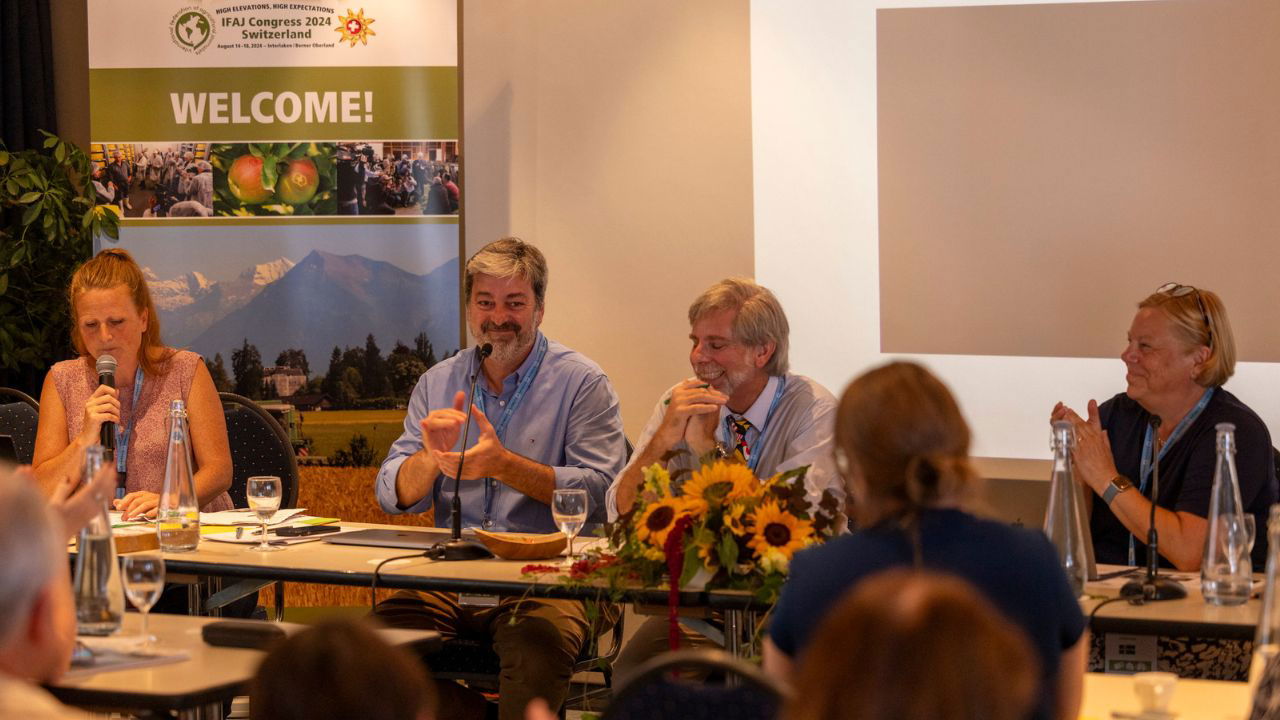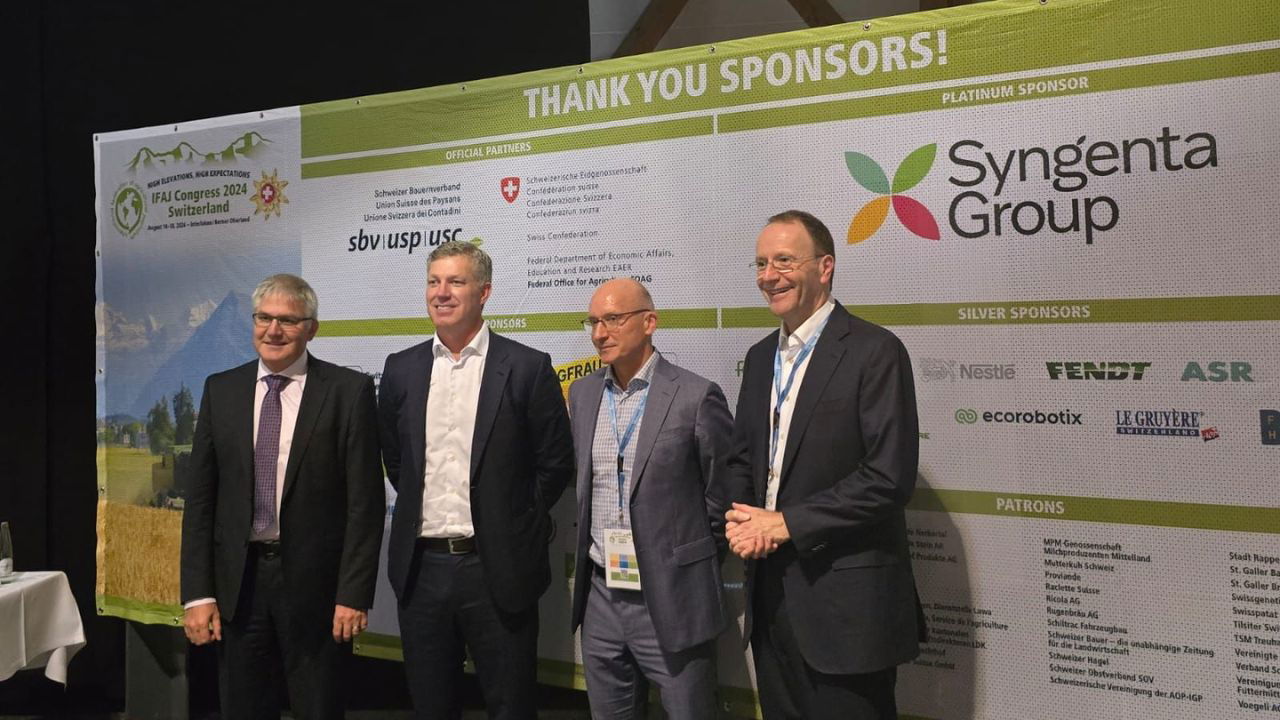
The 68th IFAJ Congress 2024 commenced in Switzerland’s beautiful town of Interlaken on August 14, 2024, and will continue until August 18, 2024. The event has attracted 267 participants from 33 countries across six continents, offering a unique platform to explore the diverse landscape of Swiss agriculture. Attendees will benefit from a mix of farm visits and top-tier speakers, providing insights into both traditional alpine farming and cutting-edge agricultural technologies.
Switzerland, despite its small size, boasts a wide variety of agricultural practices, ranging from large-scale farming on the plains to specialized mountain farming. The country’s agricultural sector is a blend of family-run farms and innovative research, showcasing a harmonious coexistence of tradition and modernity.
The congress began with registration at Hotel Metropole. The welcome address was delivered by Roland Wyss-Aerni, President of the Organizing Committee, Kirsten Müller, President Swiss Guild of Agricultural Journalists (SAJ), and Guy Parmelin, Swiss Federal Councillor, Minister of Agriculture. Christian Hofer, Director of the Federal Office for Agriculture (FOAG) shared his views on ‘How Switzerland Reconciles Food Supply and Sustainability’ and Fritz Glauser, Vice President Swiss Farmers Union (SFU) on ‘How Swiss Farmers Meet Society’s High Expectations.’

Following this, a panel discussion on ‘What Are the Needs of Consumers and Nature?’ was held which featured speakers including Jonas Schälle, Project Manager Agriculture BirdLife Switzerland, and Christophe Barman, President Fédération Romande des Consommateurs FRC. The congress also featured prominent industry leaders, including Jeff Rowe, CEO of Syngenta; Mark Schneider, CEO of Nestlé; and Urs Riedener, Chairman of Emmi Group. Mark Schneider, CEO Nestlé shared his insights on ‘Nestlé – Regenerative Practices for the World Market’ and Jeff Rowe, CEO Syngenta Group on ‘Syngenta: Reconciling Sustainability and Productivity.’

Their dialogue focused on the future of agriculture, the role of innovation, and regenerative practices. They emphasized the importance of value chain cooperation, investment in research, and supportive policies to sustainably meet the challenges of feeding a growing population.
Eva Reinhard, head of Agroscope, presented on Agroscope's systems research. She emphasized the increasing complexity of research and production, highlighting the necessity of integrating multiple methods for effective results. Reinhard also discussed the influence of consumer habits on environmental impact, showcasing research on optimized diets and innovations like disease-resistant crop varieties and microalgae as nutrient resources.
Meanwhile, agricultural journalists from around the world participated in a three-day professional development workshop. After a series of insightful presentations from IFAJ and Syngenta in the morning, the afternoon was spent visiting Biohof Trimstein and Horbermatt farms. These visits offered a deeper understanding of various farm production systems, policies, and regulations, drawing comparisons with agricultural practices in Australia.

While the commitment to sustainability remains strong, the panel highlighted the ongoing challenge of changing consumer habits. Farmers are often encouraged to adopt conservation practices, but these efforts are not always rewarded by consumers willing to pay higher prices for sustainably produced goods.










